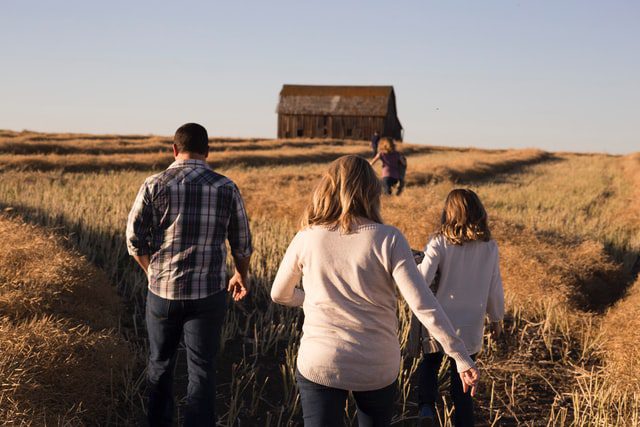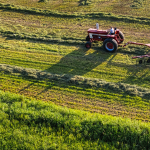As we enter a new year, after the most unusual couple of years that we have had, most people will have taken the Christmas break to take stock of their lives and businesses and consider what the future holds.
Although farmers get less downtime than most people, there is still the opportunity to catch up with family members and friends and maybe make a few decisions.
The future of farming is as uncertain as ever as we enter a new regime of grants and subsidies, combined with the unpredictability of markets in the wake of Brexit. No doubt more farmers than ever will be asking if it’s worth carrying on, especially with land prices reaching record levels. In our patch, we routinely see bare land in North Cheshire selling for the high teens of thousands of pounds per acre, even for farmer sized plots (i.e. not small pony paddocks).
So, you’ve had the family chat over Christmas and decide to give us a call in January about getting your farm on the market for the coming spring. Where do we start?

Ownership
Our starting point is to check the ownership of the property. We’re not being suspicious, but we know how farms evolve. Different family members may buy different parcels at different times; there may have been inheritances along the way. It is possible that not all of the property is registered at the Land Registry; whilst not essential it’s something we may well recommend get sorted so as to save delays at a later stage. If a buyer is presented with a complex unregistered title, it may well take some time for their legal advisers to deal with the matter.
We have had situations where family members who own land are not part of the farming business, sometimes they are not even in the UK. It is important to us that all owners are party to the sale. Besides the legal requirements (e.g. anti-money laundering), it is possible that different family members may require different advice. For example, if auntie Doris owns 10 acres next to the village, that parcel should be considered differently from brother John’s 100 acres of hill land. There is also the issue of taxation; whilst we recommend clients take expert advice from an accountant, owners with differing interests may well require distinct advice. A younger person may be able to “roll-over” their capital gain and avoid paying Capital Gains Tax whilst an older relative may not be able to do so.
Third Party Rights
Allied to establishing ownership, we also look at access and other third-party rights. All too often these are glossed over the farmers and landowners but can be crucial at the time of a sale. In the ideal world, all separate parcels (Land Registry Titles) would have frontage directly on to the public highway, but we know that’s not how farms work. Quite often access is taken over other land. If the other land is within the family then there’s usually no problem, but it may hinder lotting or sales of individual parcels. The buyer (or more particularly their lender) will require confirmation that every piece of land can be readily accessed.

If access is over a third-party’s property (not in the family) then greater care has to be taken. Firstly, is it documented? If so, that’s a good start, but it may be limited, for example to an agricultural use only. That’s no use if the land is otherwise ripe for development or diversification.
If access rights are not documented, we will need to know how they have arisen. Many exist due to the passage of time, but we have come across important rights that were held on a licence, which was revokable. In general, if a right has been used for twenty years without payment or consent it cannot be removed. However, in the absence of documents the use would need to be proven and may result in delays to the sale. It is also the case that the right can only exist for the actual use being made, so cannot be intensified.
We also need to know as much as possible about other wayleaves and easements, such as pipelines, cables, etc.. Are these documented? What are the annual payments? Are there any restrictions?
Occupation
It is quite common to find that a farmer has allowed somebody else to use part of their farm. This may be as simple as grazing, growing potatoes or storage in disused buildings. We need to ascertain the basis of any such occupation and establish if the use can be ended. Farmers all too often talk about “licences”, but in reality licences have to be treated with caution. In particular any commercial uses may lead to the establishment of a business lease, whether or not it is intended.
Development Potential
As you only get one chance to sell the family farm, you need to make sure that any development potential is considered. One issue for many, though, is the time it may take for any development to come to fruition. Strategic development could take ten years (or more) so is not something to contemplate three months before a sale. Depending on the strength of possible development, we could look at offering a promotion agreement or option to a developer. This may release some advance cash, but would also give buyers of the land a mechanism for realising development income.

If time is tight, or developers do not see the land as being ready for an option or promotion agreement, we can look at selling with clawback or overage provisions. This is where the vendor receives a share of any future development income. The percentage is set out in a contract, along with the timescale and also parameters, for example equestrian use may be permitted, but not housing development.
Overage agreements are complex and need to be used only in situations where there is some genuine chance of future development. There is a danger that they can be off-putting to buyers and may diminish sale prices.
Title Report
At Oakwood we will work with vendors to consider these issues, although legal clarification may be required. We would ask the vendor’s solicitor to prepare a Title Report setting out all the issues.
It may be possible, or even essential, to sort out some of the issues set out above before bringing a property to the market.
Timing
Traditionally there were seasons for selling farms, often with livestock farms being sold in the spring as the grass starts growing and arable farms in the autumn. However, such is the imbalance between supply and demand that timing has become less important and farms are traded all year round.
Marketing
As part of the sale we agree a marketing plan with our clients, looking at all the likely markets. We will arrange for photographs to be taken and for a sales brochure to be prepared. At Oakwood we hold a database of interested parties with whom we would make contact, but also use portals to market property.

As each farm is different, the marketing campaign needs to be bespoke. In some cases we may use drone footage of farms, whereas for others straightforward photographs may be acceptable. For entire farms, or development sites we may arrange for professionally prepared glossy sales brochures.
A marketing period will be agreed so that interest can reviewed.
Money Laundering
It is a legal requirement that agents collect anti-money laundering documents on all vendors (that means all with a share of ownership and includes executors where one owner is deceased). Don’t be offended if asked, even if we’ve known you for years. We are subject to inspections and may be fined if we don’t check ID. We must tie the owners as per the Land Registry with the ID checks we undertake. We are also obliged to check the ID of buyers and should not report a sale until this is done.
Sales Memorandum
At Oakwood we pride ourselves on a quality service. One thing we do is provide the parties to any sale, and their solicitors, with a detailed sales memorandum. This sets out who is involved and what is involved, as well as the all important price. The sales memorandum should also specify any agreements as to clawback and details of any matters affecting retained land, for example shared water supplies, creating new access rights, where a farm is perhaps being split or sold in lots.
Appraisal
We are always delighted to speak with contacts old and new and offer a no obligation marketing appraisal. We will consider how best to extract value from farms and land to meet the requirements of the owners. Our directors have over thirty years of experience each and handle sales with professionalism and sensitivity.
CALL TODAY – 0161 941 4228 – TO START THE BALL ROLLING IF YOU ARE LOOKING AT A FUTURE SALE OF YOUR FARM.






